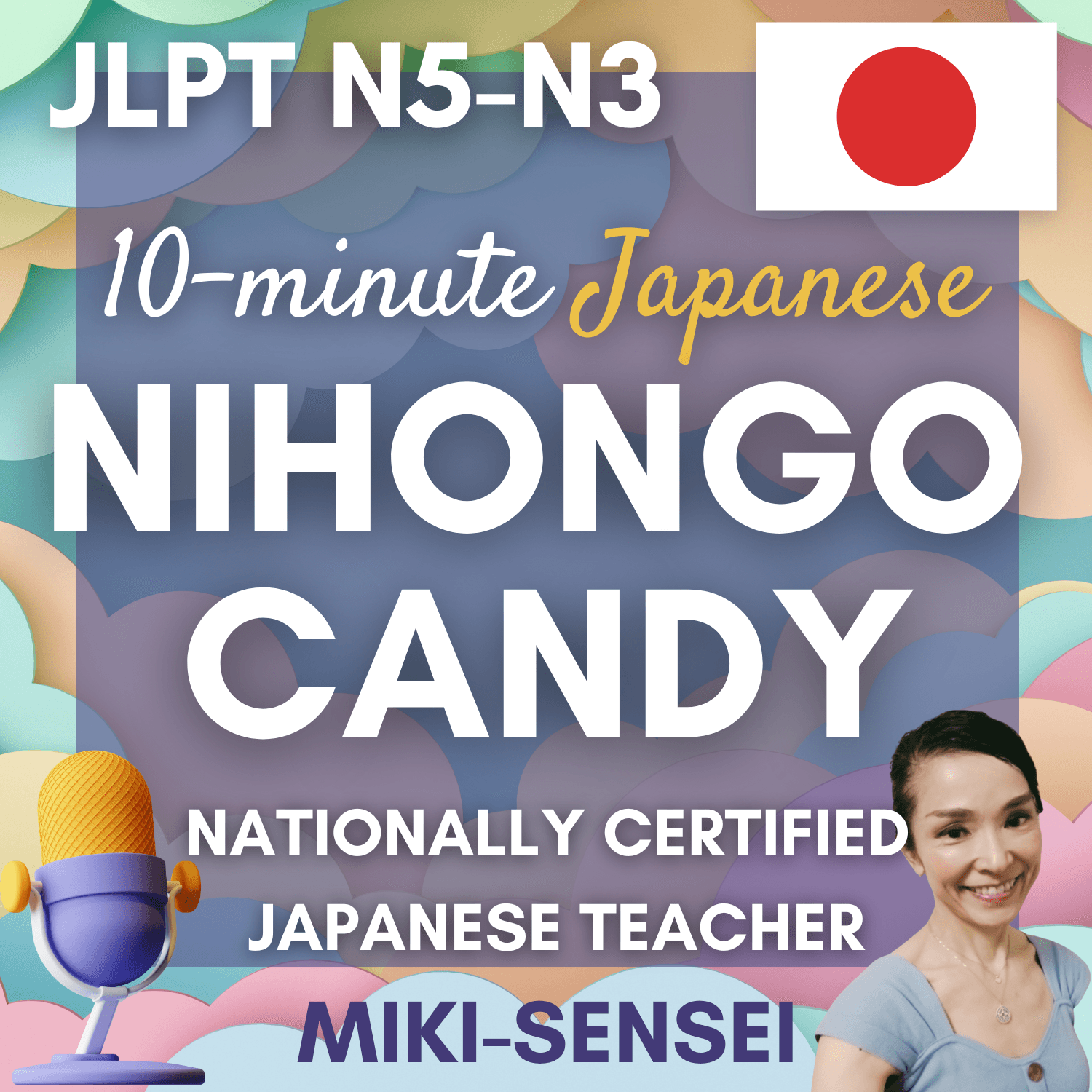
【 Podcast NIHONGO CANDY #116 】Regret Expressions ばよかった・ならよかった \/ ba yokatta・nara yokatta

Introduction
Today we're exploring an essential Japanese grammar pattern that helps you express regret and wishes about past situations: 「ばよかった/ならよかった」(ba yokatta/nara yokatta). This expression means "I wish I had..." or "It would have been better if..."
By the end of this episode, you'll understand how to form this pattern with verbs, adjectives, and nouns, and use it confidently to express your feelings about past situations.
Section 1: Basic Understanding of ばよかった/ならよかった
The grammar pattern ばよかった/ならよかった literally means "it would have been good if..." and expresses regret or wishes about past situations that cannot be changed.
You'll use this pattern most often in three main situations. First, when expressing regret about your own past actions or decisions. Second, when wishing someone else had done something differently. Third, when discussing hypothetical past situations in a polite way.
This pattern has the same meaning as たらよかった (tara yokatta), but たらよかった (tara yokatta) has a more casual tone. For example, 「パーティーに行けばよかった」(paatii ni ikeba yokatta) and 「パーティーに行ったらよかった」(paatii ni ittara yokatta) both mean "I wish I had gone to the party," but the second one sounds more casual.
Section 2: Grammar Formation Rules
Let's learn how to form ばよかった/ならよかった with different word types.
For verbs, you use the conditional form plus よかった. The pattern is: [verb conditional form] + よかった. For example, 「もっと勉強すればよかった」(motto benkyoo sureba yokatta) means "I wish I had studied more." You might also say 「早く起きればよかった」(hayaku okireba yokatta) meaning "I wish I had gotten up earlier."
For い-adjectives, you remove い and add ければよかった. The pattern is: [い-adjective stem] + ければよかった. For example, 「もっと大きければよかった」(motto ookireba yokatta) means "I wish it had been bigger." You can also say 「もっと安ければよかった」(motto yasukereba yokatta) meaning "I wish it had been cheaper."
For な-adjectives and nouns, you add ならよかった directly. The pattern is: [な-adjective/noun] + ならよかった. For example, 「週末ならよかった」(shuumatsu nara yokatta) means "I wish it had been a weekend." You might also say 「もっと静かならよかった」(motto shizuka nara yokatta) meaning "I wish it had been quieter."
Section 3: Usage and Common Expressions
Let's explore how to use this grammar pattern in everyday situations.
The most common use is expressing personal regret about your own actions. For example, 「タクシーで行けばよかった」(takushii de ikeba yokatta) means "I wish I had taken a taxi" when you're late because you chose to walk instead. Another example is 「もっと話せばよかった」(motto hanaseba yokatta) meaning "I wish I had talked more" when you realize you missed a good opportunity for conversation.
You can also express regret about other people or situations by adding のに at the end. For example, 「バスが時間通りに来ればよかったのに」(basu ga jikan doori ni kureba yokatta no ni) means "I wish the bus had come on time."
There are several common expressions you'll hear frequently. 「もっと早く来ればよかった」(motto hayaku kureba yokatta) means "I wish I had come earlier." 「ジャケットを着てくればよかった」(jaketto o kite kureba yokatta) means "I wish I had brought a jacket," useful when it's unexpectedly cold outside. 「もっと練習しておけばよかった」(motto renshuu shite okeba yokatta) means "I wish I had practiced more beforehand." The addition of ておく emphasizes preparation or doing something in advance.
Section 4: Practical Examples
"I wish I had checked the weather forecast before going out."
「出かける前に天気予報を見ればよかった。」
(Dekakeru mae ni tenki yohou o mireba yokatta.)
"I wish today had been Saturday."
「今日が土曜日ならよかったのに。」
(Kyoo ga doyoobi nara yokatta no ni.)
"I wish I had bought that headphone when it was on sale."
「セールの時にそのヘッドフォンを買えばよかった。」
(seeru no toki ni sono heddofon o kaeba yokatta.)
Closing
あなたは、今、何かの試験や目標のために、勉強をしていますか。(Anata wa, ima, nanika no shiken ya mokuhyoo no tame ni, benkyoo o shite imasu ka.)
あとで、"あのとき、もっと勉強しておけばよかった"と思わないように、今やるべきことに、しっかりとりくんでくださいね。(Ato de, "ano toki, motto benkyoo shite okeba yokatta" to omowanai yoo ni, ima yaru beki koto ni, shikkari torikunde kudasai ne.)

Our Weekly Podcast
Practicality first! A weekly podcast that helps you master useful expressions and vocabulary you can start using in everyday conversations right away. Follow and listen, and you’ll find the dots connecting—your conversation skills will naturally improve.
BLOG CATEGORY
WELC Language Services - Copyright 2025 | TERMS of SERVICE | PRIVACY POLICY



